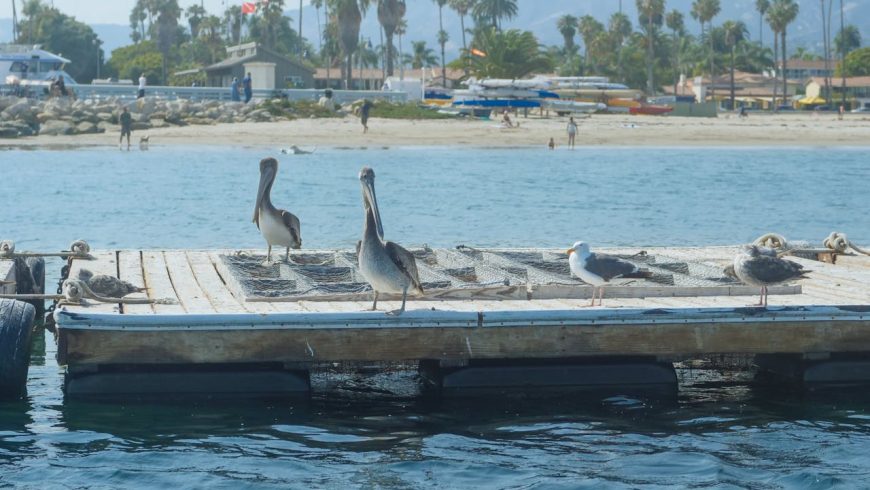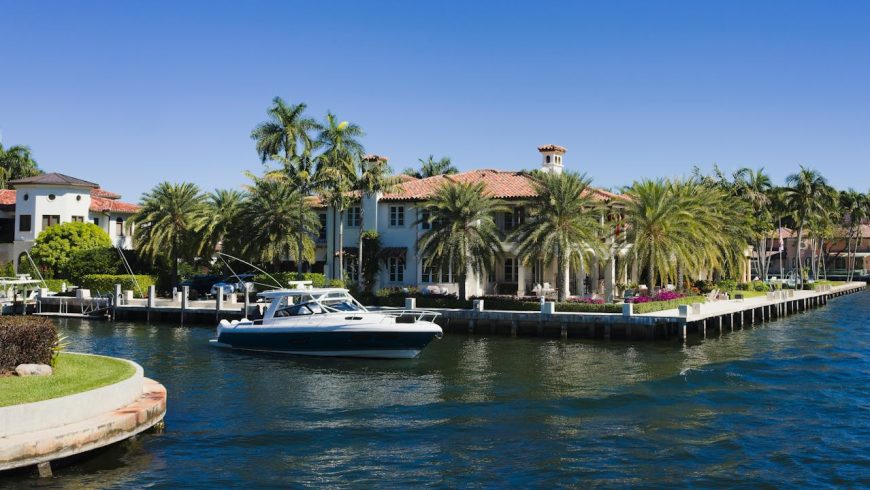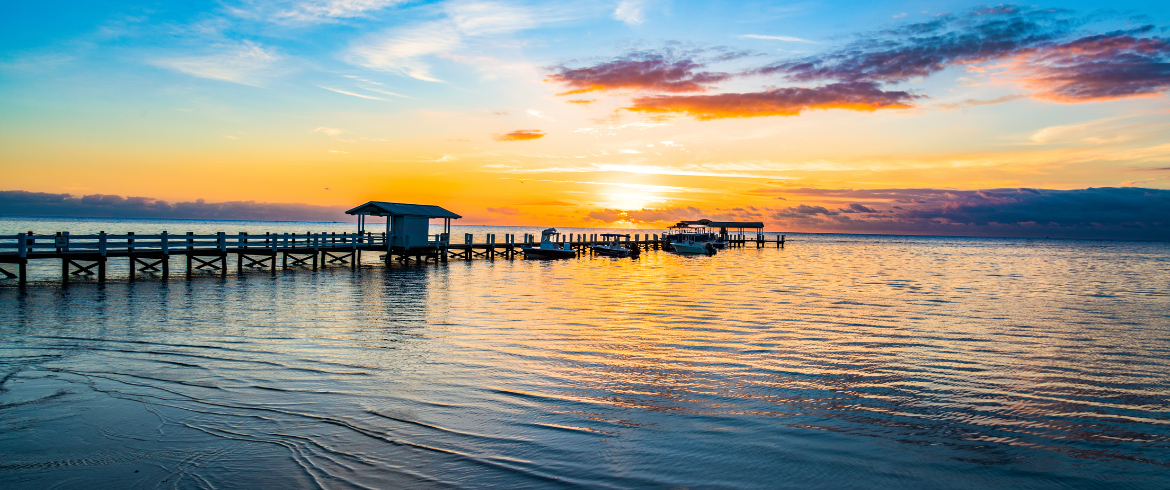Florida is bordered by water on three sides, making boating a favorite activity. From Fort Lauderdale’s quiet canals to Key West’s open waters, residents and visitors enjoy varied boating. As boating grows in popularity, so does its impact on the environment. Eco-friendly boating in the Sunshine State means enjoying Florida’s waters while also protecting them. Today’s choices shape the waters of tomorrow.
Start with a Sustainable Boat Trip
A sustainable boat trip begins with preparation. Responsible boating starts before a vessel even leaves the dock. Planning meals with reusable containers, carrying refillable water bottles, and checking for leaks or engine issues all contribute to safer and cleaner outings. Waste left behind at sea can harm animals, while an unmaintained boat burns more fuel than necessary. By preparing with sustainability in mind, boaters create experiences that are enjoyable and environmentally sound.
Florida’s Unique Marine Environment
Florida is home to ecosystems that are rare and fragile. Coral reefs line parts of the southern coast, seagrass meadows cover shallow bays, and mangroves protect shorelines while serving as nurseries for young fish. These areas are essential for biodiversity and coastal protection. Damage caused by anchors, pollution, or careless boating takes decades to repair. Recognizing the value of these ecosystems is the first step toward protecting them.
Reducing Fuel Use and Preventing Pollution
Fuel is one of the largest sources of boating-related pollution. Modern engines reduce emissions and use fuel more efficiently, which directly benefits the environment. Boaters who maintain engines, clean propellers, and avoid idling save fuel and reduce costs. Even small fuel leaks can spread across the water and harm marine life, so frequent checks are necessary. Clean energy options, such as solar-powered boats, are slowly entering the market and will play a larger role in the future. These innovations represent an important step in promoting eco-friendly boating in the Sunshine State.
Protecting Wildlife While on the Water
Florida’s waters are filled with life. Manatees rest in warm springs, dolphins play in coastal bays, and pelicans dive for fish near piers. These animals are part of what makes boating so special, but they are also vulnerable. High speeds and carelessness can injure or kill them. Respecting slow-speed zones, keeping distance from feeding animals, and turning off engines when near wildlife protects these species. Responsible boaters share the water rather than dominate it.

Handling Waste the Right Way
Trash is one of the easiest problems to prevent. Bringing back every item that goes out on the boat ensures nothing ends up in the water. Bags, bottles, and fishing line can choke or injure wildlife. Pump-out stations across Florida make it simple to empty onboard toilets responsibly. A boat equipped with a waste bin encourages passengers to participate in clean boating habits. Waste management is not just a duty—it’s a clear statement that boaters value the waters they enjoy.
Eco-Friendly Anchoring Techniques
Anchors are necessary for safety, but they often damage coral and seagrass. Many areas in Florida now provide mooring buoys that allow boats to secure themselves without harming habitats. When no buoys are available, choosing sandy bottoms for anchoring prevents long-term ecological damage. Seagrass and coral are slow-growing, and recovery from anchor damage can take decades. A few moments of thoughtful decision-making preserve these essential habitats.
Community Efforts Supporting Green Boating
Local communities play a major role in promoting eco-responsible practices. Florida boating clubs often hold shoreline clean-ups, oyster reef restoration projects, and wildlife education events. These gatherings not only improve the environment but also strengthen the boating community. A boat trip can easily combine fun with environmental awareness. Eco-tours, guided by certified naturalists, show passengers how to identify marine species and understand their importance. These tours highlight that conservation is not a limitation but an enhancement of the boating experience.
Eco-Friendly Boating in the Sunshine State: Choosing the Right Gear and Supplies
What goes on board matters as much as how the boat is operated. Reusable items reduce plastic waste, while biodegradable soaps and cleaning agents keep chemicals out of the water. Reef-safe sunscreens protect both the skin of passengers and the delicate corals below the surface. Small changes in preparation prevent large-scale harm to marine life. Responsible gear choices are an easy step for every boater to adopt.
Educating New Boaters for Lasting Change
Many new boaters are unaware of how their actions affect the environment. Education is essential for long-term improvement. Florida boating schools and safety courses now include eco-friendly practices in their training. These programs teach the basics of waste management, wildlife awareness, and anchoring responsibility. To become an eco-conscious tourist, visitors must commit to respecting Florida’s natural rules. Picking operators who prioritize sustainability, respect speed zones, and follow waste disposal rules contributes to protecting Florida’s resources.
Florida’s Future Depends on Responsible Boating
The demand for boating grows every year as Florida welcomes new residents and millions of tourists. Without eco-friendly practices, the natural beauty that makes boating enjoyable could disappear. Healthy waterways support fishing, tourism, and local economies. They also provide families with places to relax and connect with nature. Protecting these waters is not optional—it is essential for maintaining Florida’s way of life.

Supporting Green Businesses and Marinas
Business choices reflect personal values. Marinas, boat rental companies, and tour operators that adopt eco-friendly measures deserve support. Some have switched to solar-powered docks, invested in cleaner fleets, or introduced recycling stations. Choosing these businesses rewards their efforts and pressures others to follow. When the market demands eco-responsibility, businesses respond. Supporting green operators extends the reach of individual action.
Final Thoughts on Eco-Friendly Boating
Eco-friendly boating in the Sunshine State means protecting Florida’s waters while still enjoying them to the fullest. By reducing fuel use, handling waste properly, respecting wildlife, and making responsible gear choices, boaters preserve the natural treasures that make Florida unique. Each trip is a chance to set an example and safeguard the environment for future generations. When boaters combine fun with responsibility, Florida’s waters remain a paradise for years to come.
Cover image: photo via Canva PRO

Author Bio: Sarah Bellamy is a moving expert at Anywhere Anytime Moving & Storage, a trusted Florida-based company that provides residential and commercial relocation services with flexible storage options. She combines her industry knowledge with a passion for sustainability, helping people transition smoothly while keeping environmental impact in mind. Outside of work, Sarah enjoys exploring Florida’s waterways and supporting local conservation efforts.
